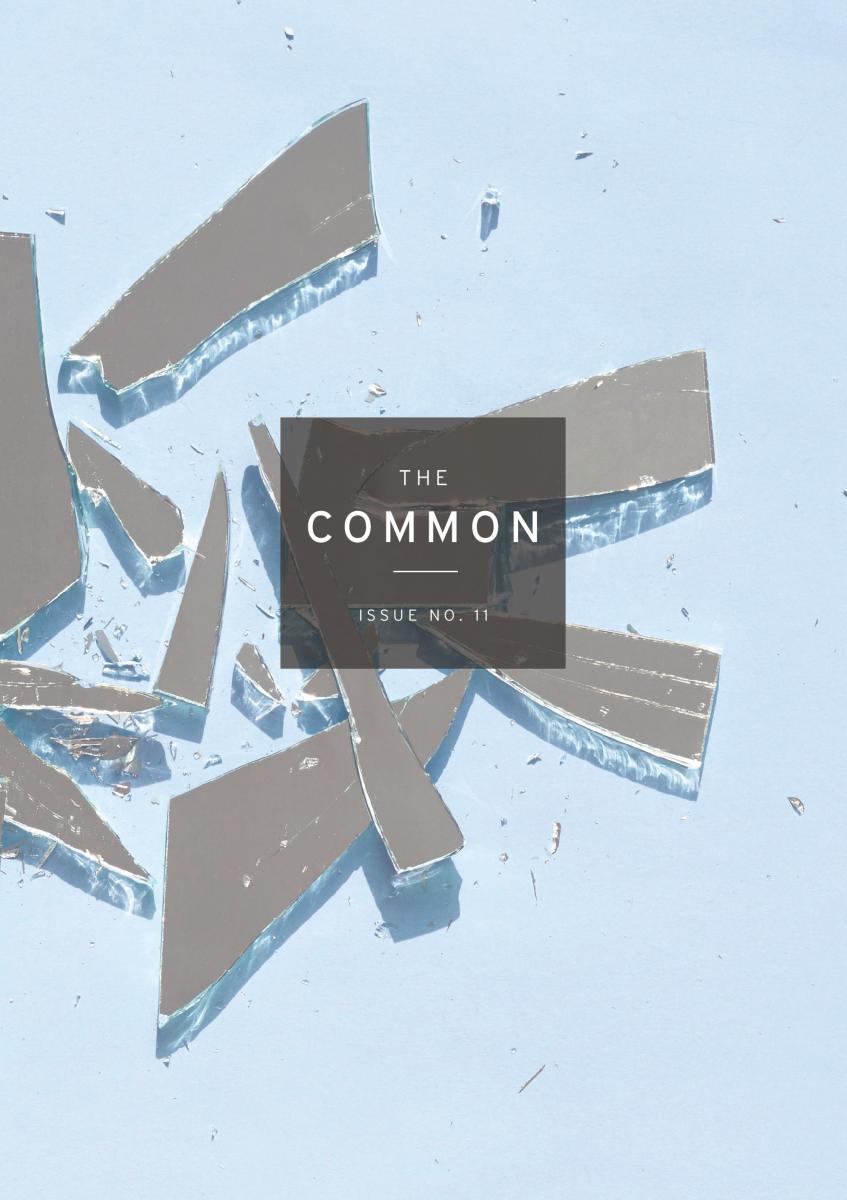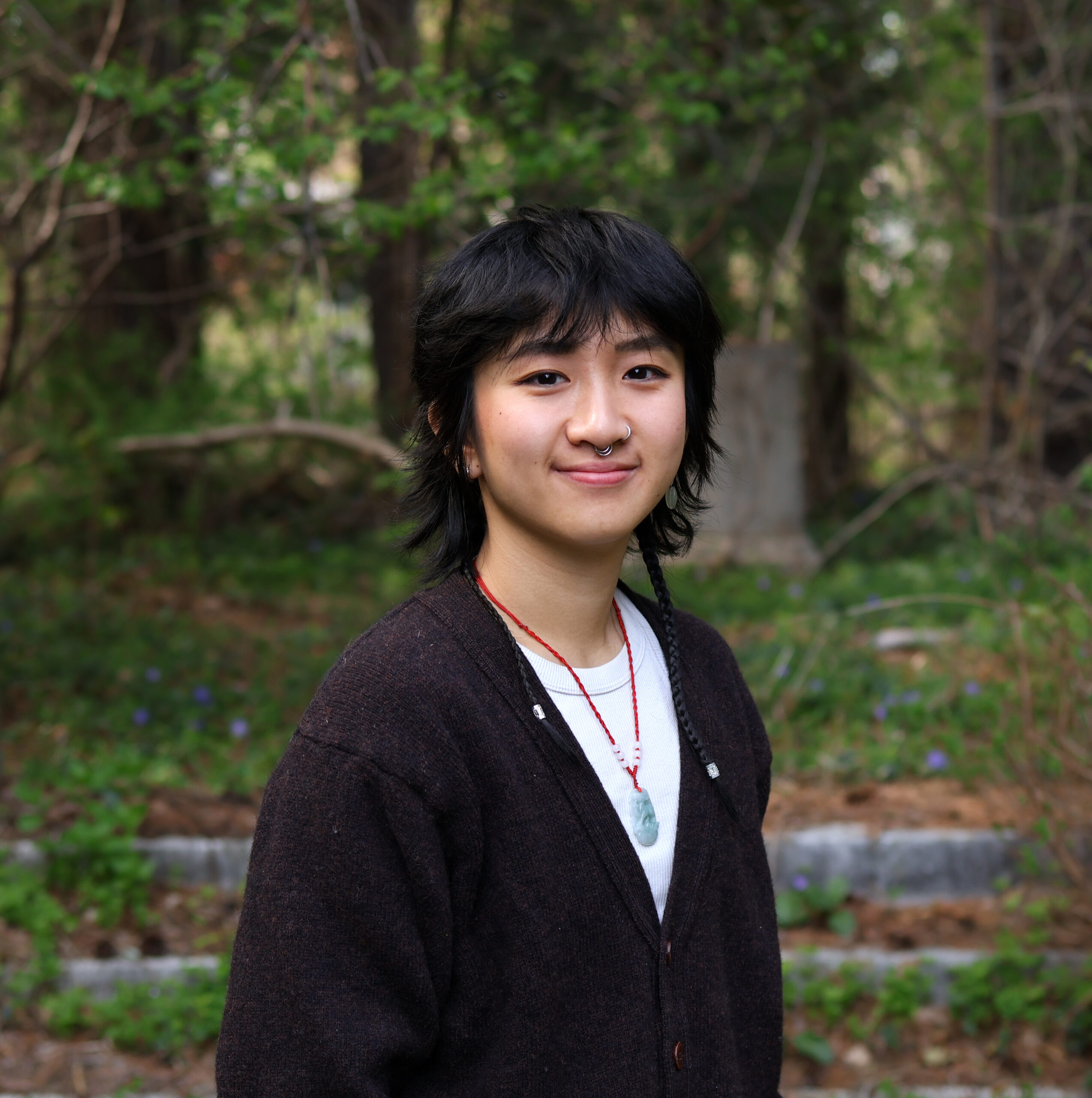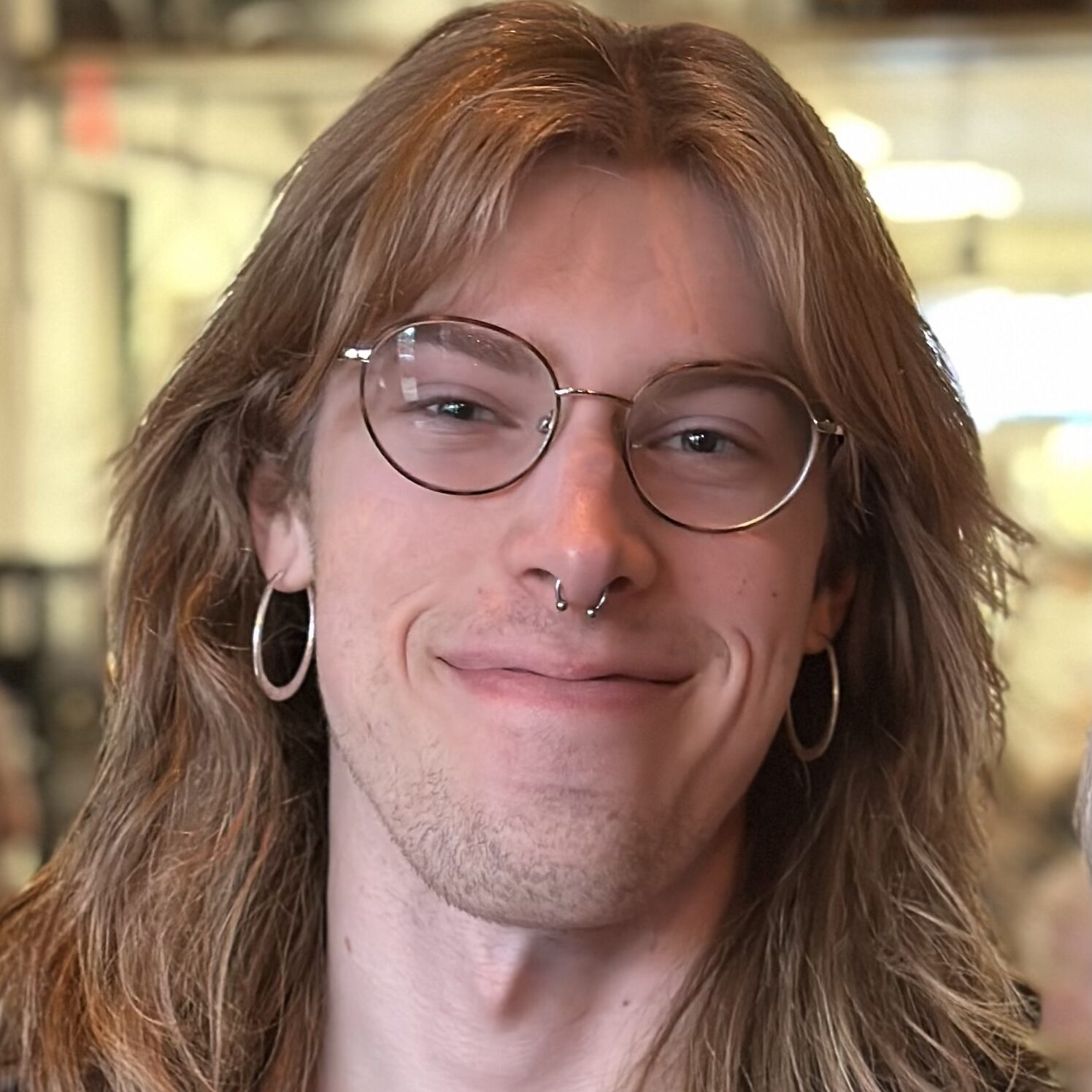In honor of women in translation month, we at The Common have compiled this feature, highlighting the translated pieces from our pages that were written or translated by women.
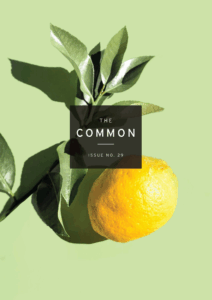
The Amman portfolio in Issue 29 highlights the voices of many women writers, like Mariam Itani, Maryam Dajani, Ala Janbek, and Yara Ghunaim. These perspectives are brought from their Arabic original to English thanks to the work of translators like Nariman Youssef, Wiam El-Tamami, Addie Leak, and Mayada Ibrahim.
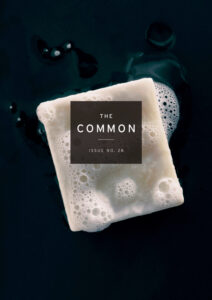
Issue 28 brings a focus to contemporary fiction and poetry by Catalan women, featuring prose from Mònica Batet, Carlota Gurt, Mercè Ibarz, and many others. There is also a catalogue of poems from Zoraida Burgos, Maria Josep Escrivà, and Dolors Miquel, translated from the original Catalan.
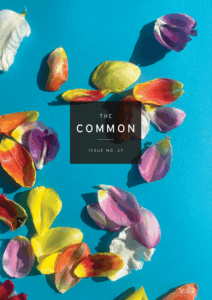
Issue 27’s portfolio, focusing on Arabic Stories from Chad, South Sudan, and Eritrea, is translated by a team of female translators, including Addie Leak, Perween Richards, Mayada Ibrahim, and Sawad Hussain, who brought Stella Gaitano’s piece, “Zero,” and many others to English-reading audiences.
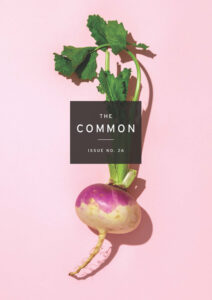
The portfolio from the farmworker community in Issue 26 includes three original translations from The Common‘s editor in chief Jennifer Acker. She translates from Spanish a short story, Julio Puente García’s “Jacinta Murrieta,” Arturo Castellanos Jr.’s poem, “Autobús,” and an essay by Alondra Aguilar Rangel called “My Grandfather’s Songs.”
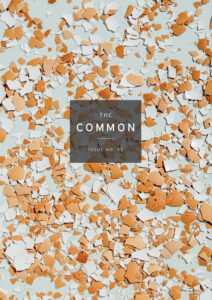
Issue 25 brings a portfolio of Arabic fiction from Kuwait, featuring writers like Bothayna Al-Essa, Hooda Shawa Qaddumi, Estabraq Ahmad, and Basima al-Enezi. The portfolio is translated entirely by incredible women translators, like Nashwa Nasreldin, Sawad Hussain, Nariman Youssef, maia tabet, and Laura Albast, who worked to bring these works to English-reading audiences. This issue also includes Yuliya Musakovska’s poem, “The August Story,” which she and her co-translator, Olena Jennings, brought to English from the original Ukrainian.

In Issue 24, Heather Houde translates Gabriel Carle’s “In Heat,” the story of a TV-obsessed high schooler on his summer break, from its original Spanish. You can also find Rossella Milone’s family chronicle, “Operation Avalanche,” translated from Italian by Laura Masini and Linda Worrell.

Issue 23 includes a collection of short stories from Palestine, translated from the original Arabic. This collection features works written by female authors like Samira Azzam, Abeer Khshiboon, Sheikha Hussein Helawy, and Suheir Abu Oksa Daoud, as well as works translated by Nariman Youssef, Ranya Abdelrahman, and Nashwa Gowanlock. In addition to the Palestine portfolio, this issue also presents Julia Sanches’s translation of a story by Eider Rodríguez.
 Issue 21 features a portfolio of contemporary Moroccan fiction, all translated by women translators Alice Guthrie, Nashwa Gowanlock, and Nariman Youssef. The portfolio includes work by Malika Moustadraf, Fatima Zohra Rghioui, and Latifa Baqa.
Issue 21 features a portfolio of contemporary Moroccan fiction, all translated by women translators Alice Guthrie, Nashwa Gowanlock, and Nariman Youssef. The portfolio includes work by Malika Moustadraf, Fatima Zohra Rghioui, and Latifa Baqa.

In Issue 20, readers will find a collection of writing from the Lusosphere—Portugal and its colonial and linguistic diaspora. This portfolio features a number of works in translation by Susana Moreira Marques, Cristina Carlos, Matilde Campilho, Teolinda Gersão, and Eliane Marques, among others. In addition, this issue includes work from women translators such as Carolyne Wright, Amanda Sarasien, and Marguerite Itamar Harrison. Along with writing from the Lusosphere, Issue 20 brings Clara Obligado‘s “Exile” (translated by Rachel Ballenger).
 Our Issue 19 features a portfolio of writing from Sudan, including original fiction in translation by Lemya Shammat, Emad Blake, Bushra Elfadil, and Abdel-Ghani Karamalla, all of which were translated by Elisabeth Jaquette.
Our Issue 19 features a portfolio of writing from Sudan, including original fiction in translation by Lemya Shammat, Emad Blake, Bushra Elfadil, and Abdel-Ghani Karamalla, all of which were translated by Elisabeth Jaquette.

Our Issue 17 translation portfolio, “Arabic Stories from Syria” featured translations by Alice Guthrie and Maia Tabet, as well as original fiction in translation from Colette Bahna and Shahla al-Ujayli. In addition to the Arabic fiction portfolio, Issue 17 includes Alfonsina Storni‘s poem “You Want Me Daybreak” translated from the original Spanish by Nicholas Friedman, and Ferreira Gullar’s poem “Two Plus Two: Four,” translated from Portugese by Tal Goldfajn.
 Issue 16 includes translations by Jennifer Acker, Nicole Cecilia Delgado, María José Giménez, Joan M. Pabón Maxán, Hannah Cook, and Aurora Lauzardo Ugarte, plus work in translation from Ana María Fuster Lavín, Mara Pastor, Carmen Graciela Díaz, and Vanessa Vilches Norat as part of the special portfolio “De Puerto Rico: Un año después de la tormenta” (One year after the storm). In addition, Issue 16 features Polina Barskova‘s poem “After the War, in the West,” translated from the Russian by Valzhyna Mort.
Issue 16 includes translations by Jennifer Acker, Nicole Cecilia Delgado, María José Giménez, Joan M. Pabón Maxán, Hannah Cook, and Aurora Lauzardo Ugarte, plus work in translation from Ana María Fuster Lavín, Mara Pastor, Carmen Graciela Díaz, and Vanessa Vilches Norat as part of the special portfolio “De Puerto Rico: Un año después de la tormenta” (One year after the storm). In addition, Issue 16 features Polina Barskova‘s poem “After the War, in the West,” translated from the Russian by Valzhyna Mort.

Issue 15’s special portfolio—Arabic Stories from Jordan—features translations by Elisabeth Jaquette, Thoraya El-Rayyes, Alice Guthrie, and Maia Tabet, as well as work in translation from Fairooz Tamimi, Jamila Amaireh, Majidah al-Outoum, and Haifa’ Abul-Nadi.

Issue 13 features Maia Tabet’s translation of “Living in the Past” an excerpt from Sinan Antoon’s novel The Baghdad Eucharist, originally in Arabic.

Issue 11’s Tajdeed portfolio includes Arabic fiction from Fatima Al-Mazrouei, Mona Merhi, Malika Moustadraf, Rasha Abbas, and Basma Al-Nsour, as well as translations by Alice Guthrie, Elisabeth Jaquette, Maia Tabet, Thoraya El-Rayyes, Nashwa Gowanlock, Katharine Halls, Yasmeen Hanoosh, Nariman Youssef, Anna Ziajka, Fadwa Al Qasem, Ghada Mourad, and Ruth Ahmedzai Kemp.

Issue 10 features two poems by Sylvie Durbec, translated from the original French by Denis Hirson, as well as a portfolio of new Chinese poetry in translation that includes works from Tang Danhong and Zheng Min.
Issue 09 includes Valzhyna Mort’s translation of Arseny Tarkovsky’s poem “I Went Sick as a Child,” originally in Russian.
Issue 08 features poetry in translation by Sylvie Durbec, as well as translations of Polish poetry by Antonia Lloyd-Jones and Martha Cooley‘s translation from the Italian of Antioni Tabucchi’s short story, “Clouds.”
 In Issue 07, Mariya Gusev, along with Jeff Parker and Alina Ryabovolova, translates Zakhar Prilepin’s short story, “from SANKYA” from the original Russian.
In Issue 07, Mariya Gusev, along with Jeff Parker and Alina Ryabovolova, translates Zakhar Prilepin’s short story, “from SANKYA” from the original Russian.
Issue 06 features translations from Arabic by Thoraya El-Rayyes, and from Russian by Catherine Ciepiela, and Anna Khasin, as well as Russian poetry in translation from Anna Glasova.
Issue 02 features Jacquelyn Pope’s translation of the Dutch poet Hester Knibbe’s “Zijnstra Inc.” as well as Russian fiction in translation from Katia Kapovich and Spanish fiction translated by Teresa Villegas.

Issue 01 includes poetry in translation from Yehudit Ben-Zvi Heller, and Marina Tsvetaeva as well as translations by Catherine Ciepiela.
